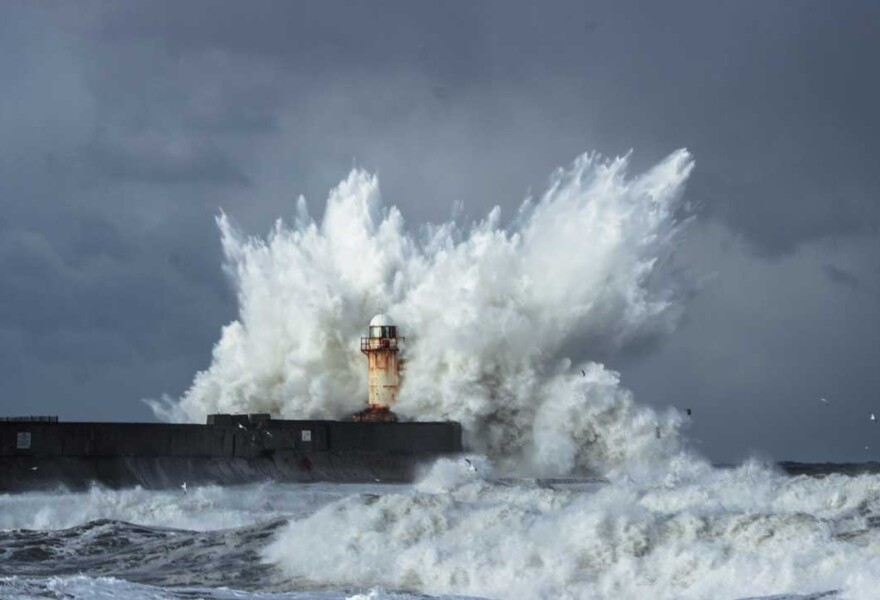In brief:
- There is concern that, in times of crisis, businesses will neglect their sustainability agendas as they focus on short-term decision making.
- It’s time for companies to factor sustainability into business continuity strategies. After all, many of the crises we face are linked to environmental and social challenges.
- Firms should leverage scenario planning to build confidence in their sustainability programs, rather than halt them.
Russia’s invasion of Ukraine is the latest in a long line of moments in time that reinforce the need to stay on track in tackling sustainability.
Companies everywhere have been scrambling to take a position, multinationals weighing up their options, pulling products from shelves and using the media to show their humanitarian support. Living without Russian customers might be bearable in the short term; going without Russian commodities is much harder. Shifting supply options and developing quick-win strategies to avoid disruption to business-as-usual has been the order of the day, creating concern that businesses might neglect their sustainability agendas in favor of ‘fire-fighting.’ This means redirecting budget that would be spent on addressing all important environmental issues to managing more immediate risks, or unconsciously making decisions to address the crisis that actually undermine, or even reverse, sustainability efforts.
A little over 30 days into the Russia-Ukraine war and the British grocery chain Iceland reluctantly rowed back on a sustainability pledge it had made in 2018 to completely eliminate palm oil from its own-label products. Rather than use palm oil, a major driver of deforestation, the firm had shifted to sunflower oil, much of which was imported from Ukraine. The war has temporarily cut off the supply, forcing the company’s Managing Director, Richard Walker to admit defeat. “In some recipes, the only viable substitute for sunflower oil…turns out to be palm oil. I say this with regret, but the only alternative to using palm oil under the current circumstances would simply be to clear our freezers and shelves of a wide range of staples,” he said in a blog.
A threat to the sustainability imperative
Times of crisis have the potential to unleash a tempest that could jeopardize corporate sustainability efforts and put the kibosh on business transformation. As the Covid-19 pandemic destabilized the world, in the US, the Environmental Protection Agency relaxed pollution regulations to enable companies to focus on survival, and plastic industry groups asked for a halt to state-level plastic bag bans. When companies have decisions to grapple with that might affect their day-to-day existence, environmental, social and governance (ESG) matters may seem like slow-burning issues they can deal with tomorrow. According to a survey of 750 executives evaluating business’ responses to climate change, almost two-thirds of companies noted a need to cut back on their environmental sustainability efforts in response to the pandemic and associated economic downturn.
Exacerbating the issue is our collective brain biases. Studies suggest we are all – from corporate decision makers to consumers – comfortable to stall, putting sustainability on the backburner. The political psychologist Conor Seyle, director of research at One Earth Future Foundation, says we lack the collective will to address the climate crisis because of the way our brains have evolved. “In the last two million years, we have evolved to pay attention to immediate threats. We overestimate threats that are less likely but easier to remember, like terrorism, and underestimate more complex threats, like climate change.” It’s no wonder that an ever-growing group of researchers, technologists and philosophers agree on the notion that “short-termism is the greatest threat we face this century.”
There’s no time to halt sustainability, even momentarily
The status quo for corporate responses to moments of crisis is dangerous. By stalling action on sustainability issues, companies are putting themselves at risk, and there are serious implications for wider society and the environment.
The fact is, the climate crisis, biodiversity loss and widespread ecosystem degradation are issues that are no longer challenges for the long-term, to be solved later on, ten, 20 or 30 years from now. They are critical issues that must be addressed right now. The latest report from the Intergovernmental Panel on Climate Change (IPCC) spells it out very clearly: The world’s greenhouse gas emissions must peak in the next three years, and then fall by at least 43% by the end of this decade. “It’s now or never if we want to limit global warming to 1.5˚C,” says Professor Jim Skea, co-chair of the IPCC’s report.
Such a reduction will require an enormous effort by governments, businesses and individuals. It also means that companies can ill afford to slow down, halt, shift or alter their efforts to decarbonize whenever a new acute crisis hits, whether that’s caused by a natural disaster, a global pandemic or social conflict. Large, heavy tankers are often more difficult, expensive and time-consuming to get back up to speed when their engines have been switched off and they’ve been treading water in open seas. It’s the same with efforts to drive corporate sustainability. There’s simply no time to leave sustainability idling in times of crisis.
It’s time to make changes to business continuity
The good news is that companies – even big ones – have proven, time and again, that they are adept and agile enough to react nimbly and make decisive decisions without interrupting efforts to do the right thing, by people and planet.
But companies have plenty of work to do to ensure that sustainability never falls off the corporate agenda whatever is happening in the world. Too often, ESG issues are not integrated into decision making processes, especially business continuity planning. Of course, business continuity isn’t corporate sustainability. But sustainability is business continuity. For example, a firm that retools its manufacturing plants to use less energy and fewer natural resources reduces the chance of supplies running into trouble in the future. Additionally, focusing on demand-side action and collaborating with supply chain partners both upstream and downstream to ensure they are well-equipped to navigate the transition and adapt to climate change are critical for building resilience, while also supporting systemic change.
Executives charged with mitigating ESG risks should be at the heart of the team that proactively maps and prepares for potential interruptions to a business. Given the potential impact of various crises on economic issues – including supply chain resilience, and the security and supply of energy – it is crucial that senior execs are aligned on the issues that truly matter. After all, many of the crises before us are proxies for, or closely linked to, the climate crisis we all face. The latest Deloitte Climate Check survey shows that nearly 30% of executives say their organizations are already feeling the operational impacts of climate-related disasters, and more than a quarter are facing a scarcity of resources due to climate change.
Get serious about scenario planning
Effective and robust scenario planning will also give companies the confidence to stay on track with their sustainability programs by better understanding the path that lies ahead and the defenses a business needs to survive and thrive. Scenario planning not only enables companies to understand the risks of direct environmental disruption from climate change, but also sheds light on transition risks to a low-carbon economy, such as carbon taxes, market shifts to green technologies, or even liabilities from ecosystem damages. Asserting control over an uncertain world by identifying assumptions about the future and determining how your company will respond enables a more proactive stance. It’s time to leverage scenario planning to identify how your business should be modeled and prepared for the ecological transition and the evolving environmental and social landscape.
All of the elements that form a strong sustainability strategy can be helpful during times of crisis. Businesses that have a clearly defined purpose and understand what it is that really matters to their stakeholders will be better placed to make the right decisions when a crisis hits.
The world will continue to navigate a host of geopolitical, social and environmental crises in the coming years. Rather than halt progress, these moments of catastrophe should be used as a catalyst to improve the way we run businesses and spur much needed innovation and transformation.



